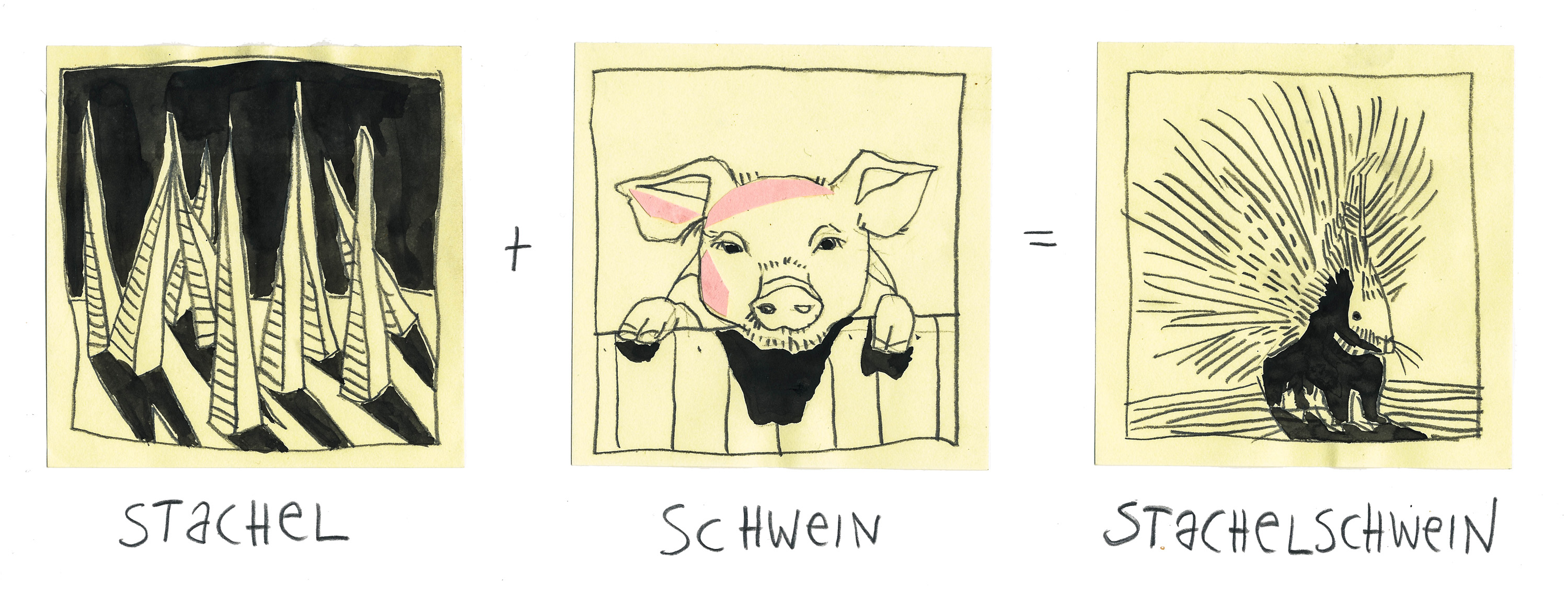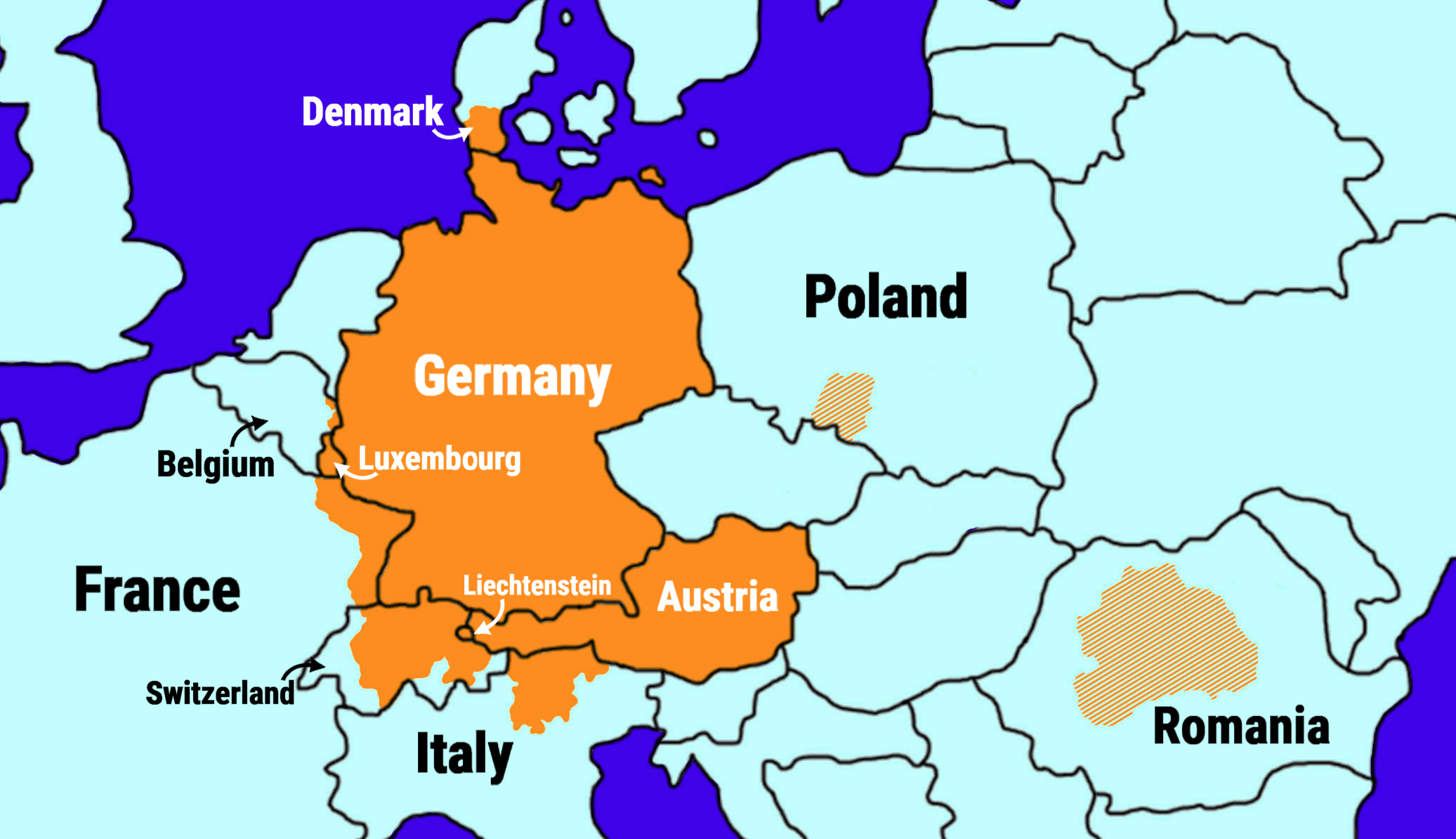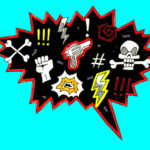In the last few years, German as a foreign language has gained a lot of popularity, all over Europe and the world, people suddenly want to learn German. German is in fashion, though no one is as surprised as the native speakers.
By Anja Meunier / 26.3.2017
Part I: My language, my home: Catalan
Part II: My language, my home: Maltese
Were we not always told ‘German is too difficult’ and ‘it always sounds as though you are fighting’? Well, yes. And maybe little has changed about that. Yet thanks to the strong economic position of the German region in Europe, my mother tongue has suddenly taken on a whole new meaning and more and more people are discovering the interesting, beautiful and logical sides that I also want to open up to you today.
First of all: German can also sound very beautiful and musical! It wasn’t without reason that 19th Century Germany was known as the land of poets and thinkers. Goethe, Schiller, Rilke…all of whom are still very highly regarded all over the world today. Just listen to the following poem.
“Der Panther” by Rainer Maria Rilke
What’s especially interesting about the German language, and what it’s so famous and notorious for, is the compound nouns. The most commonly cited example, which was created solely for this purpose, being Donaudampfschifffahrtsgesellschaftskapitänsmützenbommel (the bobble on the cap of a captain for the Danube steamship company). The construction of such word-snakes is thus possible in German, because unlike in many other languages, a noun that is to be closely descriptive can be supplemented with the prefixing of another noun without a space in between. With such precise descriptions we achieve such long words.

Illustration: Luzie Gerb
In reality, these gigantic words are almost never used, after two or three connections, it’s done. However, compound words in a shorter form are ever-present. Lots of animal names, objects and other nouns are formed in this way. I love these words, their logic is so simple and child-like. A bear that washes his hands? A ‘wash-bear’ (Waschbär; raccoon)! A pig with spikes? A ‘spike-pig’ (Stachelschwein; porcupine)! You’re happy in Spring? ‘spring feelings’ (Frühlingsgefühle)! A song is firmly stuck in your ear like a worm? You have an ‘ear-worm’ (Ohrwurm)!
Some of these words have been adopted into other languages as they so fittingly describe very specific situations or concepts, for example Schadenfreude (being happy about someone else’s misery), Wanderlust (the pleasure of hiking or travelling), Wunderkind (very talented ‘miracle’ child) or Kindergarten (daycare – a ‘garden’ for kids).

Illustration: Luzie Gerb
One of my Spanish friends, whose German is already fantastic, recently said that one of the things he will never understand is the use of expletives in German. There’s actually quite a lot of them: eben, halt, doch, eigentlich, mal, echt, ja, nur… just to name a few. They all have different meanings depending upon the context, and when they are used back to back they can, again, mean something completely different… for example in the sentence “Bring doch deine Freundin mit!“ (‘Bring your girlfriend with you, if you like’), the ‘doch’ means that it’s a suggestion, whilst in “Du bist ja doch gekommen!” (‘You came after all!’) it expresses surprise.
Another peculiarity of the German language is its word order; the most important words are usually placed at the end. In his text very often quoted by irritated German students ‘The Awful German Language’, Mark Twain complains, amongst many other things, about the fact that you have to wait so long to find out what actually happens. „Heute Abend bringe ich dich…“ Um? Zum Flughafen? (‘Tonight I will…’ Kill you? Take you to the airport?) One of the most famous incomplete sentences in history is that of then-foreign secretary, Hans-Dietrich Genscher in 1989 which he addressed to runaway GDR-citizens on the balcony of the German Embassy in Prague: „Wir sind zu Ihnen gekommen, Ihnen mitzuteilen, dass heute Ihre Ausreise…” (‘We have come to you, to share with you, that today your departure…’) The rest was incomprehensible amongst deafening cheers, but could also have been ended with the grammatically correct statement “…nicht möglich ist” (‘…is not possible’).
I also find it interesting how in German, we use the words of other languages – above all English words. Sometimes we use them to differentiate things more precisely. For example, we use the word ‘Swimmingpool’ for a private swimming bath, whilst public baths are called ‘Schwimmbad’. When someone goes ‘shoppen’ they’re buying clothes, for groceries we use the word ‘einkaufen’. There are also other Anglicisms that would appear very odd to a native English speaker. We call a mobile phone a ‘Handy’ and ‘Public Viewing’ is used when we go to watch football in a public place, even though correctly translated it is actually a public laying out of a corpse.

German speaking regions of Europe © A. Meunier
Over 100 million people speak German as their mother tongue. In Europe, German is spoken in the whole of Germany, Austria and Liechtenstein. In addition to this it is also spoken in South Tyrol, the north-most part of Italy, the German speaking region of Switzerland, Luxembourg, the German municipality of Belgium, the border areas of Alsace and Lorraine in France, North Schleswig in Denmark as well as parts of the population in some eastern European regions such as Opole in Poland and in Transylvania in Romania.
I find it great that my native language is suddenly so popular. In exchanges with people that have learnt it as a foreign language I gain a new perspective and begin to think through and question it in a whole new way.






Recent Comments